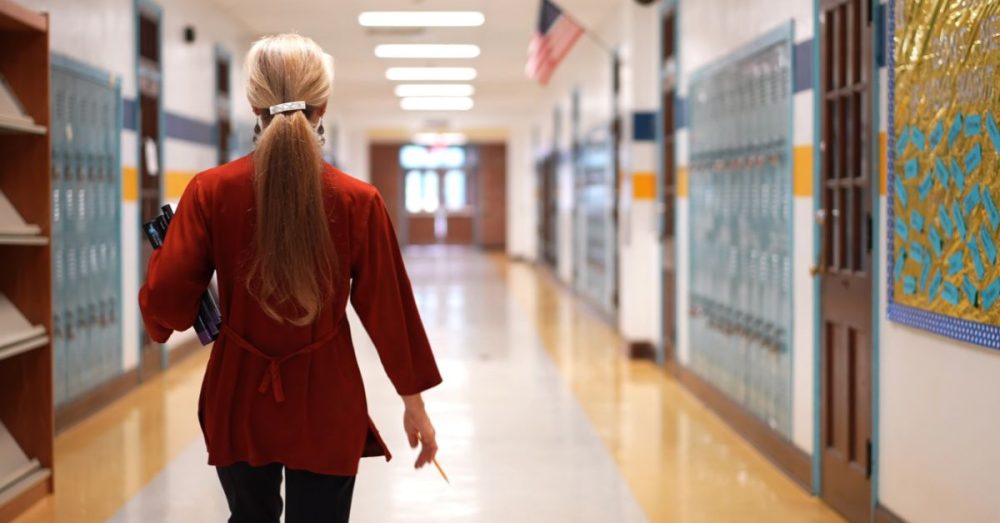A new study claims that Texas students taught by uncertified teachers are losing up to four months of education.
The study, conducted by Jacob Kirksey at Texas Tech University, leveraged data from the first two school terms following the school closures seen during the COVID-19 lockdowns. It was during this time that the number of uncertified teachers hired began to soar.
Notably, the study found that uncertified teachers made up over 80% of new hires in 55 Texas counties for the 2022-2023 school year. Moreover, one in five new uncertified teachers did not hold a bachelor’s degree.
Dallas ISD has witnessed a similar trend, as previously reported by The Dallas Express. The number of uncertified teachers in the school district rose from 19.4% of new teachers in the 2021-2022 school year to 29.5% in 2022-2023 and 34.6% in 2023-2024.
The district had already been struggling, with only 41% of students scoring at grade level on their STAAR exams during the 2021-2022 school year. Nearly 20% of the graduating Class of 2022 did not earn a diploma in four years, per the accountability report for the district. Based on the currently available STAAR scores for Spring 2024, only 18% of students met grade level in grade 5 science, and only 32% did so in grade 6 math.
Kirksey’s study found that students with new uncertified teachers lost four months of learning in reading and three months of learning in math unless the teacher had previous experience working in a public school. However, 72% of new uncertified teachers had no such experience.
“The percentage of uncertified teachers without bachelor’s degrees in early childhood and elementary education has increased noticeably, reaching 12% and 31%, respectively, by the 2022-23 school year,” wrote Kirksey in the report. “This trend is concerning, as these years are foundational for students’ long-term academic success.”
The impact of the critically high amount of uncertified teachers has started to reflect in student’s test scores. In June, the Texas Education Agency (TEA) published end-of-year assessment scores, showing a decrease in math performance scores.
“Despite the rapid increase in uncertified new teacher hires — especially since the COVID-19 school closures — we know alarmingly little about these educators,” wrote Kirksey.
“As schools continue to hire uncertified teachers to address staffing shortages, knowing the backgrounds of these teachers and how they shape student achievement helps stakeholders prioritize transition points, such as hiring individuals with previous classroom experience in non-teaching roles,” he went on to say.
While Texas is hiring new teachers at historically high rates, teachers are leaving the profession faster than ever before, as reported by The Dallas Express. A study published by the TEA shows that the attrition rate for teachers in Texas rose to a historic high of 13.4% between the fall of 2021 and the fall of 2022.
Hiring uncertified teachers allows school districts to fill those gaps quickly. Yet, per the TEA, most new uncertified teachers quit, and in some cases, even before the end of the year.
“Over the last couple of decades, universities have continued to drop in the percentage of people coming into their educational program,” said Heath Morrison, CEO of alternative teaching certification program Teachers of Tomorrow, in a previous interview with The Dallas Express.
“The traditional supply coming from universities has continued to diminish, and we’re always going to have the sweet spot of people retiring. What happened right in the middle of it all was COVID, which took a lot of people who said, ‘Okay, I’m going to go do something else.’”
As a result of the teacher shortage, some uncertified teachers now have to teach outside their field of expertise, depending on where the shortages are. Not only are students learning from a teacher with no previous education experience, but they’re also learning from a teacher who has to learn about the subject themself.
Kirksey encouraged Texas school districts to incentivize teachers to get their certification through high-quality alternative certification programs.
Additionally, Kirksey urged the TEA to improve its certification lookup platform to provide detailed information on teachers’ certification status, years of classroom experience, and other qualities.


